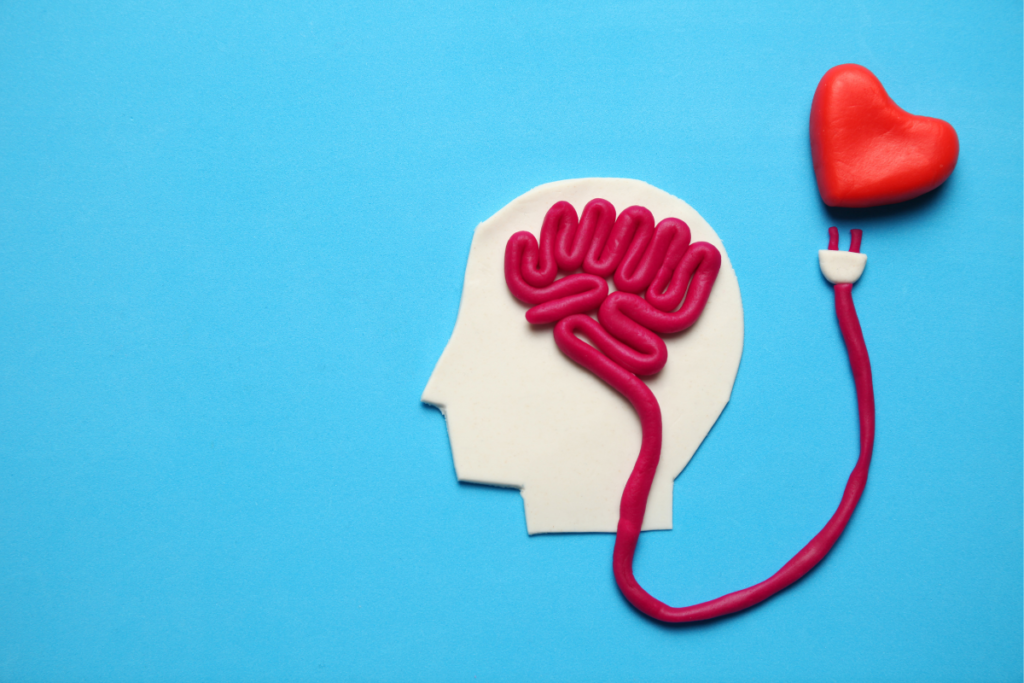Anton Guinea
Entrepreneur, Speaker, bestselling author, and founder of The Guinea Group of Companies. For over 15 years, Anton has helped leaders move their teams to become psychologically safe, physically safe and overall better versions of themselves.

Why do most people never learn emotional literacy?

We are born. We go to school. We mature physically. That is sexual maturation. We leave school. We go to work or university. And we think we have reached emotional maturation.
Even though we have not learnt some of the fundamental skills of emotional control and emotional channelling. And maybe never will.
In his book “The School of Life – An Emotional Education” – Alain De Botton explains that:
“We aren’t ever done with the odd business of becoming that most extraordinary and prized of things, an emotionally mature person – or, to put it a simpler way, an almost grown-up adult. In an ideal society, it would be not only children who were known to need an education. All adults would recognize that they inevitably required continuing education of an emotional kind and would remain active followers of a psychological curriculum”.
Firstly, though – what is an emotional education, or emotional maturity? An emotional education is one where we can put a name to the emotion we are experiencing. And we are self-aware enough at the time to do that. An emotional education is about being able to read the emotional states of other humans, and know what impact you are having on them, and why. It is about understanding that our moods matter, and that we (leaders especially) impact the emotional state of their team, just by the way they show up.
The universe is a mirror, and it reflects back to us what we put out into the world. If you find yourself surrounded by people that are not always in a great emotional state, be brave enough to ask yourself the question of what contribution you have to that. An emotional maturity will give you the confidence to know that other people’s emotional states are not your responsible, in general terms, though if you are leading them, it is in your best interests to help them feel happier, rather than sadder, when they are at work. And that might take effort. To understand others. And to understand yourself.
And to understand what your triggers are, and why you can’t keep your emotions in check at times. We all have emotional triggers, and the emotional part of our brain fires within a second when triggers show up.
Be prepared for triggers, and you will be able to use your smart brain to respond, rather than reacting. You will start to create conscious control.
Here are three things you can start doing right now, to stay in emotional maturity school.
Reflection
Reflect. As opposed to ruminate. Reflection is about unpacking what happened (generally in a pressure situation), and what you can learn from it. It is a positive process, that helps you to reframe a situation, and know that when faced with it again, you will act in a more emotionally mature way. When we lose our emotional control, we can spend days (yes, days) ruminating on what happened, and why. We spiral negatively out of control, and it can make the situation worse. Or make it appear worse than it was or is. Reflection is a short process, that helps your subconscious mind to be prepared to do better in the future.
Introspection
The beautiful skill of going beyond reflection, and instead of just trying to understand how to behave differently in the future, introspection is about understand how and why you process in the world in the way you do. What are your belief systems? What are your values? Why do you do what you do, and what are your habits or patterns. What do you believe is acceptable, and what isn’t? And why? These are big questions that most people never really consider.
Extrospection
The equally beautiful skill of not only understanding yourself, but also understand others. Why do people do what they do. What must they believe to behave in that way? This is next level, and it takes that amazing skill of being able to read others, whilst engaging with them. At a deeper level.
With some reflection, some intro and extrospection, on a regular basis, you are back in school. The school of emotional control and emotional channelling. I say channelling very specifically, as emotional maturity is not about emotional suppression, it is about emotional direction.
Regardless of your emotional state, the goal always is to ‘leave people better than you found them’ (or that is my purpose on planet earth). If you use your emotional state to help, not harm. To heal not hurt. You are on a winner. Keep up the great schooling!
Sources
The School of Life: https://bit.ly/3He4UlI
And please click the image below if you’d like to chat about what leadership means to you.
If you would like to learn more about Anton or The Guinea Group, please click here to book into Anton’s calendar, to:
UPGRADE your Mindset
UPSKILL your Leadership
UPLIFT your Teams
About Anton
Anton has dedicated his working life to helping leaders to upgrade their mindset, upskill their leadership, and uplift their teams! With a focus on helps leaders to better lead under pressure. Anton is an entrepreneur, speaker, consultant, bestselling author and founder of The Guinea Group. Over the past 19 years, Anton has worked with over 175+ global organisations, he has inspired workplace leadership, safety, and cultural change. He’s achieved this by combining his corporate expertise, education (Bachelor of HR and Psychology), and infectious energy levels.
Work With Anton!
Subscribe to our Newsletter
